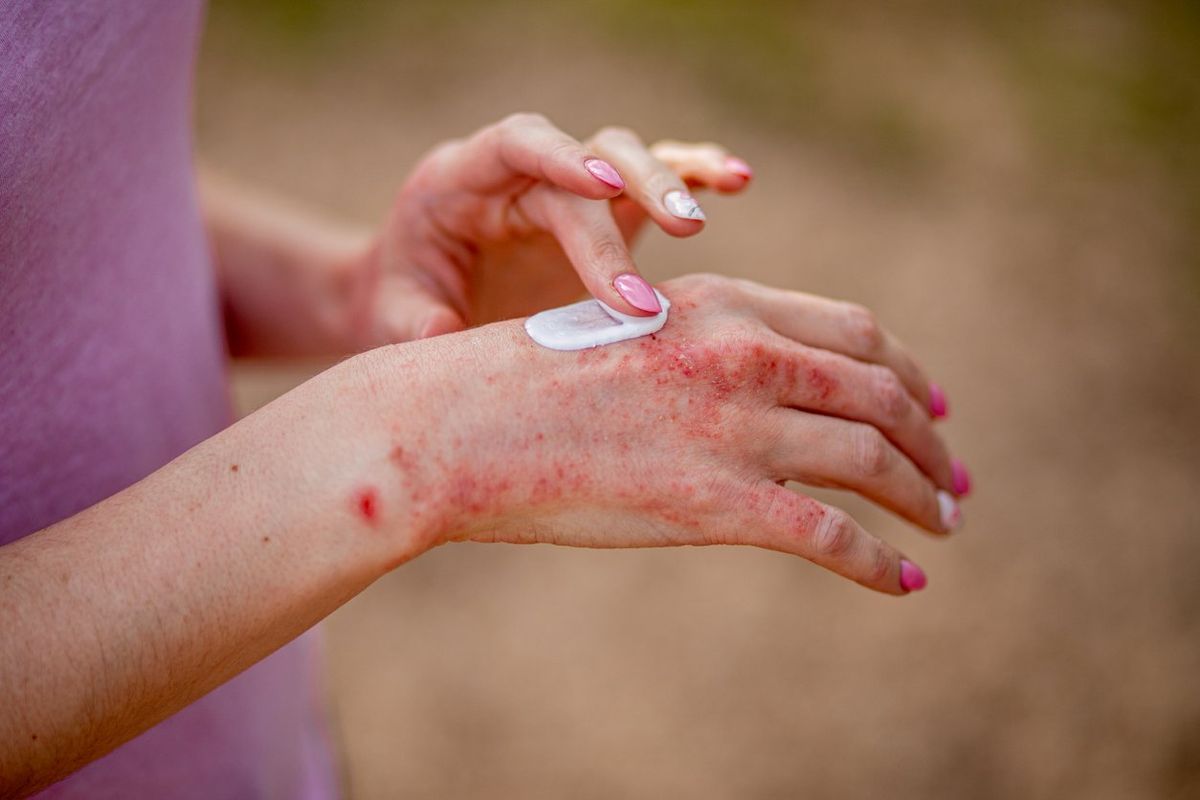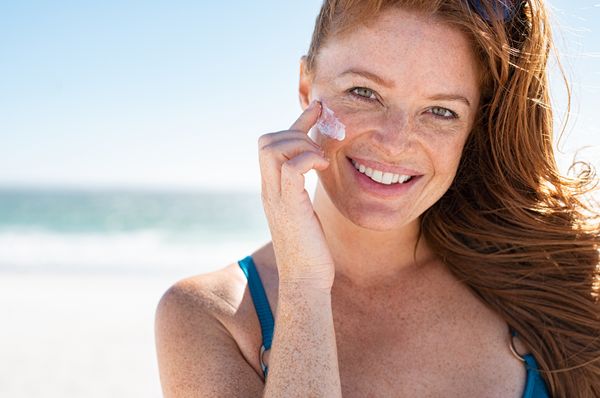More than 7.5 million people in the United States live with psoriasis, a skin disease that causes scaly red patches all over the body — including on the face, hands, elbows and knees. Almost 6 out of 10 people with psoriasis have mental health issues such as depression and anxiety related to their disease.
One study found that psychiatric disorders are more common in people with skin conditions than in those with cancer, brain disorders and heart problems combined. And another found that women are much more likely than men to have these issues.
Because psoriasis symptoms are so visible, having this disease means dealing with the stigma attached to it. People with psoriasis can feel misunderstood or even made fun of by their peers and struggle with mental health challenges that can be far more painful than any physical symptoms.
Fear of rejection leads to isolation
“Most people with psoriasis experience anxiety and worry when it comes to their self-image,” said Mina Guirguis, M.D., a clinical psychologist at the Emotional Wellness Center for Skin Disorders. Guirguis specializes in psychodermatology, a branch of medicine that focuses on the effect of skin conditions such as psoriasis on mental health (and vice versa).
Guirguis said much of the anxiety experienced by people with psoriasis is related to what others will think of them. “Essentially, will others accept them for who they are or not,” he said. Fearing rejection, many choose to withdraw rather than face this fear. “They will often isolate or hide their skin condition,” Guirguis said.
This fear of rejection can seep into the daily life of a person with psoriasis, influencing every decision they make — especially when it comes to social interactions. “They might reject an invitation from coworkers to mingle after work,” Guirguis said. “They might find excuses not to go to the beach or put themselves in any situation where their skin condition might get unwanted attention from others.”
For people with psoriasis who are in a relationship, the damage the disease does to their self-image can make it hard for them to get close to their partner. “They might reject the partner’s advances due to feelings of being uncomfortable showing their bodies and the possibility of being rejected,” Guirguis said. “This in itself negatively affects the relationship and pushes them further apart.”
Stigma, misunderstanding surround psoriasis
Unfortunately, the anxiety people with psoriasis feel about how others will react to their condition isn’t always unfounded. Their mental health issues often stem from the way people who don’t understand the disease treat them — or mistreat them.
In a 2018 article on skin disorders and self-esteem published in the International Journal of Women’s Dermatology, one woman with psoriasis shared a story of being turned away from donating blood by a nurse who accused her of having the highly contagious fungal infection ringworm. She also described being forced by her boss at the bakery where she worked to wear long-sleeved shirts on even the hottest days after a customer accused her of purposely “shedding skin” on his cake.
In the same article, another woman said she stayed in an abusive relationship for almost a decade because her abuser told her no one else would ever love her with “all those things” on her skin. Both women went on to become patient advocates for the National Psoriasis Foundation, helping others cope with the physical and mental effects of the disease.
Sharing information to end stigma
Information is key to erasing the stigma around psoriasis. Helping people in your everyday life understand that psoriasis isn’t infectious or contagious, for example, can go a long way in changing the way they look at the disease — and those who have it. When we know better, we do better.
Guirguis believes it is also the responsibility of healthcare providers to help people understand skin conditions like psoriasis and their impacts on mental health. “I think mental health professionals along with dermatologists need to provide the public with education and correct any misconceptions about the illness,” he said.
Mental health professionals and dermatologists can also come together to help treat psoriasis holistically, dealing with both the physical and psychological effects. When physical symptoms are treated successfully, mental health often improves.
Self-acceptance and honesty are key to coping
When it comes to coping with psoriasis, Guirguis is a strong believer in coming to terms with the disease. “I often advise patients to work on accepting their skin condition,” he said. When people with psoriasis are able to accept their condition instead of hiding it, he said, they’re able to build their self-esteem and confidence.
“Acceptance of one’s condition and situation will help the patient free their minds of worrying how others will perceive them and whether they will be accepted by others or not,” Guirguis said. He encourages people with psoriasis to seek out a mental health professional who can help them work toward self-acceptance.
Some people with psoriasis may find exercise helpful for boosting their mood, especially if they’re dealing with depression. And a review of nine studies found physical activity can improve conditions such as heart disease and type 2 diabetes that often occur alongside psoriasis, providing a benefit to overall well-being.
Coping methods that reduce stress can also benefit the well-being of people with psoriasis. Calming practices such as yoga, mindfulness and meditation have all been shown to boost physical and mental health.
Sharing your struggles with psoriasis can also be very healing and creates the possibility of connection with others.
“Engaging in an honest conversation is always a start,” Guirguis said. “Share with others how your skin condition impacts your emotional as well as physical health. You are not going to succeed with having every loved one truly understand what you are experiencing, but you are opening their mind to understand your struggles.”
This resource was created with support from BMS.
- Living with Psoriasis ›
- 9 Common Misconceptions About Psoriasis ›
- My Psoriasis Led to My Empowerment ›
- How Psoriasis Changes as Women Age ›
- Beyond the Physical: How Psoriatic Arthritis Can Affect Your Mental and Sexual Health ›
- Eczema Cost Me My Self-Esteem - HealthyWomen ›







